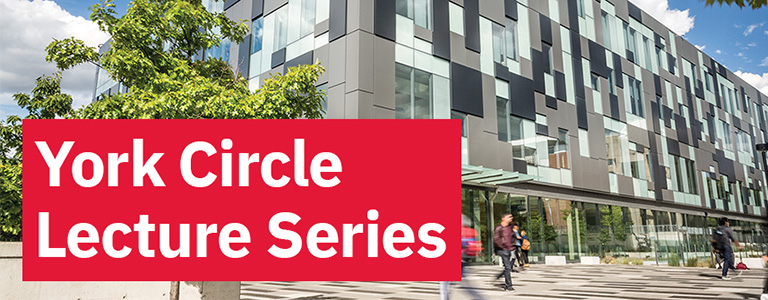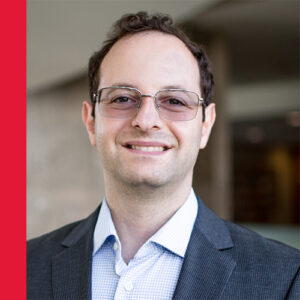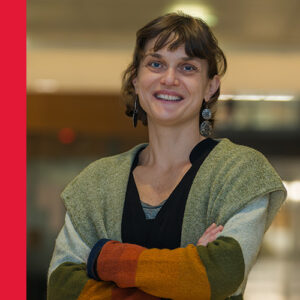
York Circle Lecture Series
We invite you to Keele Campus for the York Circle Lecture Series, presented in collaboration with our Academic Chair, Jennifer Steeves (BA ’94, MA ’96, PhD ’01), Associate Vice-President Research (AVPR). Join us on Nov. 25 and hear from York’s leading faculty members about a variety of topics that touch on some of York’s key themes.
The York Circle Lecture series is held four times a year and is open to our community of alumni and friends. Tickets are $5 and include coffee, light snacks and lunch.
Date: Saturday Nov. 25, 2023
Time: 9 a.m. – 1 p.m.
Location: Life Sciences Building, Keele Campus, York University
Agenda:
- Registration, coffee and light snacks: 9 – 9:45 a.m.
- Opening remarks: 9:45 – 10 a.m.
- First session (concurrent – choose one): 10 – 11 a.m.
- Break: 11 – 11:20 a.m.
- Second session (concurrent – choose one): 11:20 a.m. – 12:20 p.m.
- Lunch: 12:30 – 1 p.m.
- Event ends: 1 p.m.
The following speakers will be featured. Attendees will have the opportunity to choose one lecture from each session during the registration process.
First Sessions:

Maxim Voronov, Professor, Organizational Behaviour & Industrial Relations, Schulich School of Business
The good, the bad, and the ugly of authenticity
Authenticity seems ever-present in today’s society, and it has become an important research topic among organizational scholars. Much of the time, both scholars and practitioners see authenticity as unambiguously good. But we need to acknowledge the darker side of authenticity and explore its implications. The purpose of this talk is to explore “the good, the bad and the ugly” of authenticity, shifting the focus away from authenticity as an attribute of people and things and toward unpacking the process by which people and things are cast as authentic. A particular focus will be on unpacking the contribution of authenticity to both social good and social harm.

Emilie Roudier, Assistant Professor, School of Kinesiology & Health Science, Faculty of Health
Wildland fires: studying our blood vessels to better understand the impact on health
Over the last decade, the intensity and size of wildland fires have increased. Wildland fire seasons have lengthened, and these fires contribute to global air pollution. This presentation will highlight how wildland fire-related air pollution can impact our heart and blood vessels.
Second Sessions:

Usman Khan, Associate Professor & Department Chair, Department of Civil Engineering, Lassonde School of Engineering
Harnessing the power of AI for flood forecasting
Floods are the most frequent weather-related natural disasters, affecting the largest number of people globally, with economic damages in excess of $900 billion (between 1994 and 2013). Globally, climate change and urbanisation have led to an increase in floods in recent decades and this trend is projected to continue in the coming years, including in Canada. Despite this, Canada is the only G7 country without nationwide flood forecasting systems which are key to saving lives and reducing the damages associated with floods. Hydroinformatics, the study of complex hydrological systems by combining water science, data science and computer science, attempts to improve traditional flood forecasting through the use of advanced techniques such as Artificial Intelligence (AI). This talk will outline recent research in this area and plans to build a Canada-wide, open-source, real-time, operational flood forecasting system which harnesses the power of AI to improves our ability to predict and prepare for floods.

Antony Chum, Assistant Professor, CRC Chair, School of Kinesiology & Health Science, Faculty of Health
The impact of recreational cannabis legalization on cannabis-related acute care in Ontario
This presentation will discuss the effects of cannabis legalization on cannabis-related acute care (emergency department visits and hospitalizations). The research conducted discovered specific impact patterns among different demographic groups. Additionally, the talk will delve into regional disparities and analyze the policy implications arising from the legalization process.

